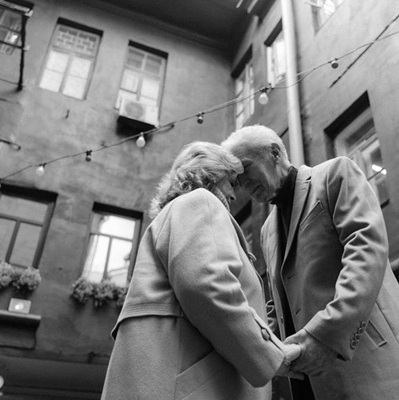AT THE TOP
His arms were roots,
thirsty for water;
its color and taste indifferent
to his lust.
His hair boasted unruliness,
dry and odd shaped, like unkempt
fields leaning from wild winds.
He disconnected himself, inventing sounds
from tears
while his skin was sore
from long work and seeing empty plates
and passing rocks that waited for
dashing dreams.
He knew his place.
The top of jazz.
IT IS SO
…and I say,
that Lombard Street
got the curves to knock
the straight out of my shoes,
echoing the hallway,
sounding on walls
cracked from
fast songs and babies crying,
in a city, under a heaven
where angels have gone south,
away from broken glass and
whiskey breath made of
sea foam and
cold summer winds,
raising a disturbance like cats
in garbage cans
and dogs growling at a
full cheese moon
as a car speeds by
breaking a puddle into
a thousand stars,
sending wet comets into a
gray sky night
where fog horns hold
the beat
and sidewalks
point the way
to where jazz
cuts wide the skin.
DIRTY FINGERS
He lived from a
Broadway flat;
a soul with a sidestep,
a story with folded edges.
Inky eyes burn deep from coffee
as he
breathes fast with thought.
The sides of him
cut the songs to bleeding;
an air path of his music
parts the dust.
The banquet of jazz serves
his inspiration
to the back doors of alley’s
in cities whispering him.
His fingers are dirty with notes.
A CITY MOVING
The music had change and stretch,
marching the sidewalks,
turning heels and heads,
twisting the jazz in into shadows
with snap and burning
where fingers speak a language of
black tar streets and perfume
rolls on the sweat of hands
born into the arms of people
stacked in apartments
that cook in summer
and buzz cold in winter
but none of it breaks
the hallway of faces
and low alley eyes staring
at back seat sleepers,
concrete yards, patched streets
and parking lot yards
where music is the
tissue connecting the
colors of skin in the city
that’s the capitol of
the world.
THIS PLACE
It’s a light calling.
A distant fire with interest
beckoning like
the child of a flat ocean,
innocent until roughened by winds
and stars without names
as the strength of the light reaches
pockets and fingers looking through
windows and past doors of hate,
over sidewalks to the other side
and into words that belong and build
under the light of river colors,
merging faces in streams
thick with the blood of sand and rocks
tumbling and flowing with rattle
like the marriage of cats and tin cans
as a harvest of sounds begins,
not great or bad but like roads joining
and skies touching,
a rising starts with fingers snapping
and sawdust sliding
as the music forms an altar of
irrepressible need and want,
building bridges with arms and legs
over anger and loss and the dust
of the sleeping
to a slow walking,
birthing the language of jazz
creating a skin of faces
speaking with sound,
baptizing the hands and words with
release
into the waters of this place.
DROWNING IN HER
The heat of her footsteps
raises my eyes and hands into
wanting.
I greedily spill my breaths toward
the stage where the weakness of me
drowns without struggle.
A magnolia blossoms on the side of
her hair; a fragrance I own.
Her songs become the fiber of my shirt.
She raises the falling within me.
I am cooled from the breeze
of satin when she moves.
Her flavor spreads sweetly through
the microphone, seasoning the black
and tan, the old and once young,
the weary and searching.
The floor feels the weight she releases.
She is greater than us all.















































Roger has a feel for Jazz–the sound, the music, tempo and jargon. Each of his poems grind out the message in resounding tones. If he is not a Jazz aficionado (which I suspect he is), he has a knack for extracting the marrow from the music he hears!
And a last name like “Singer”–what else would one expect?